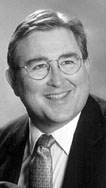For many years, The Va-gabond had heard about a major local happening that many folks talked about for several years. Around 90 years ago, Sept. 6, of 1926 at 11 a.m., this event happened in Alabama City. It was a spectacular tragedy.
It so happened that there was a circus parade in town and lightning struck a high voltage electrical wire, injuring five people and killing two. On top of that, the accident killed 15 horses.
The incident received front-page headline coverage in several newspapers. One headline read, “Two dead, five hurt in Circus crowd… High tension wire is struck by lightning and falls in crowd… Blazing wire kills 15 horses as circus parade forms at Alabama City today.”
The next day’s paper stated, “Five Injured yesterday are better.” The five injured were Ms. Willie Traffenstead, 16; Ms. Frankie Stanley and Joe Brown, all of Alabama City; and J.E. Brown and Will Harris of the circus. They were treated at the Ralls Sanatorium.
One of the members of the circus band standing by the wagon, J.E. Brown, was dazed but able to run a distance away before the second shock came with a blinding flash before knocking him down unconscious.
A full 10 minutes had passed from the first shock. Nine more horses were killed and dozens of people were knocked from their feet.
T.E. Bowling was one of the victims. He was a worker for the power company and was off-duty sitting on his porch. All ambulances were rushed to the scene, and extra police were stationed to handle the crowd. In one of the sideshow tents, every person was knocked down and dazed but none injured. The power company had serious damage to its electrical equipment, and Alabama City was without power for eight hours.
Someone made a photo showing the dead white horses still harnessed to the bandwagon. Soon afterward, the stricken circus proceeded to Rome, Ga. The circus left behind 15 white horses to be buried.
The Christy Brothers Circus opened in 1919 under the title, “Christy Hippodrome Shows,” later changed to Christy Brothers Circus. The show opened as a two-car show.
The circus was started by George Washington Christy, born Feb. 22, 1889 in Pottstown, Pa., to parents John and Ida Christy. Chri-sty purchased many of his parade wagons from the Ringling Brothers after they discontinued their downtown parades. The circus wintered first in Galveston, Texas, then in South Houston, where Christy had built a home.
On May 25, Christy’s show train wrecked just outside of Cardston in Alberta, Canada. Being the showman that he was, Christy set up in a cornfield near the wreck and gave a performance while the rails were being cleared.
In 1925 and 1926, Christy operated a second unit named Lee Brothers, but closed the show after the 1926 season.
Beginning 1n 1929, The Great Depression was a difficult time for all circus shows on the road. The Christy Bros. Circus was no exception, and not only was the economy in bad shape but weather was also a major factor. Christy and his loyal employees struggled to keep the circus on the road, but on July 7, 1930, the Christy Brothers Circus gave its last performance in Greeley, Colo.
After the close of the show, most of the equipment was sold in 1935 to Jess Adkins and Zack Terrell, who were framing their Cole Brothers Circus. Some of the parade wagons went to the Ken Mayner Circus. Christy kept his elephants and what horses he had. The elephants were used to help build Spencer Highway in South Houston, Tex.
After leaving the circus world. George Christy became mayor of the City of South Houston, serving from 1949 to 1951 and again from 1960 to 1964. He died on Aug. 7, 1975, in Houston.
Right before the unfortunate incident in Alabama City, there was another mishap with Christy Brothers that changed how people could sue in court. So, what exactly does horse poop and personal injury lawyers have in common?
The reader might think this is the start of a joke, but it is not. One of the most important legal precedents in U.S. history has to do with a horse “evacuating its bowels” on a spectator at Christy’s Circus. It so happened that this horse later died in the Alabama City accident.
In 1927, the Superior Court in Georgia awarded Ms. Turnage damages due to “mental suffering, emb-arrassment, and mortification,” even though she was not physically injured.
Here is what happened:
Ms. Turnage was in the front row at the Christy Brothers Circus watching a dancing horse performance. In the course of the routine, one of the horses backed up to her and “evacuated its bowels onto her lap, in full view of many people, including circus employees, who all laughed at the occurrence.”
The Randolph Superior Court, however, was convinced that Ms. Turnage had experienced mental suffering from the incident and awarded her monetary damages.
What makes this case unique from a legal perspective – if not from a humorous perspective – is that it set a precedent for an untold number of future civil cases. A person does not need to be physically harmed in order to be deemed “harmed” and owed damages.
Ms. Turnage was not phy-sically hurt at all in the incident, but the court thought that she was still harmed emotionally. So personal injury attorneys who argue that their clients suffered depression, anxiety, or other emotional problems related to the actions of others have Christy Brothers vs. Turnage to thank for their legal arguments.
In 1928, the Appeals Court in Georgia affirmed the decision of the trial court in favor of Ms. Turnage, and the Supreme Court refused to hear the case.





